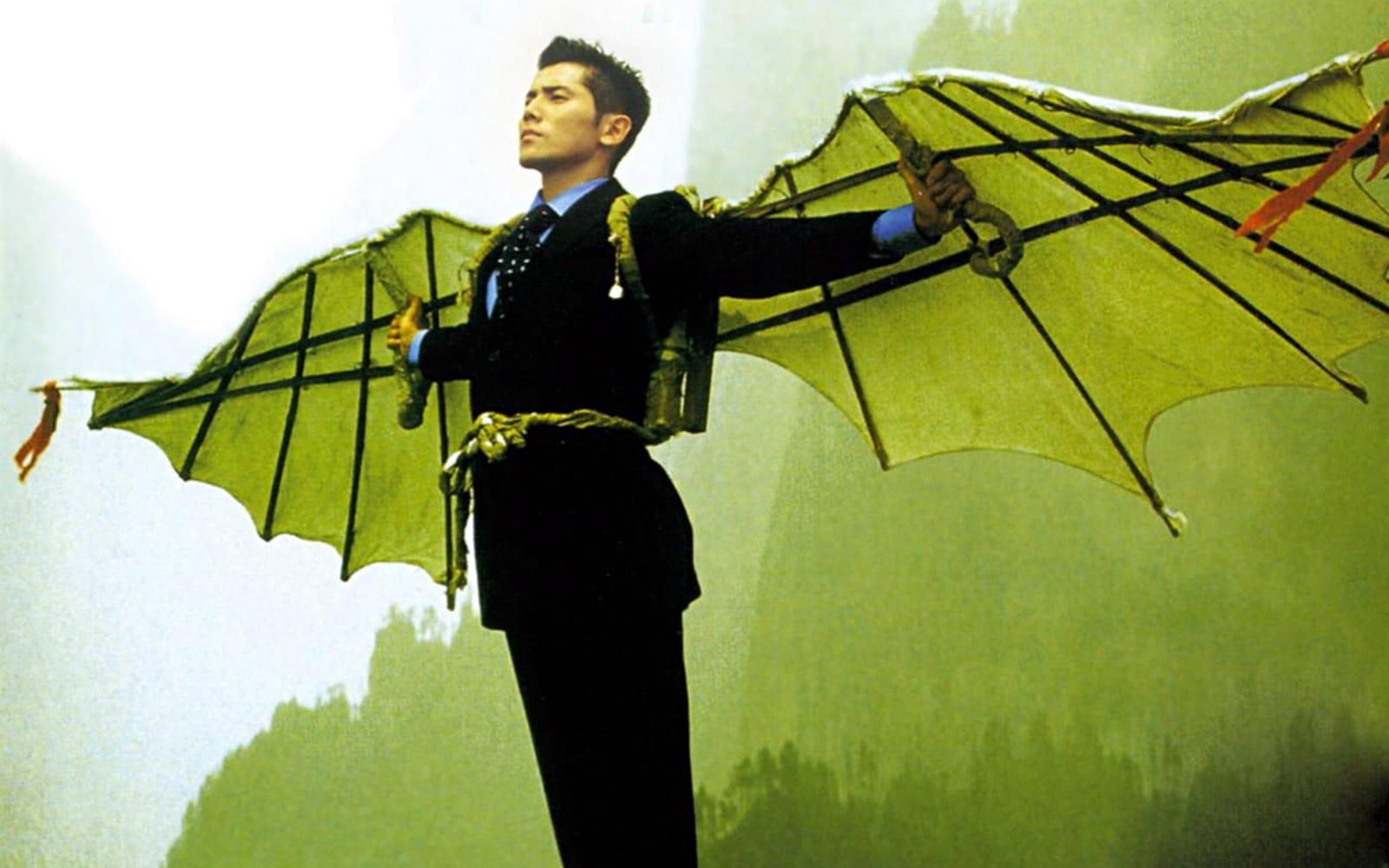The Bird People in China by Takashi Miike (Review)

I once read a review of The Straight Story describing it as David Lynch’s most Lynch-esque film simply because it was so atypical of his work (not to mention the fact that it came out on Disney). I suppose the same could be said of The Bird People in China. Directed by Takashi Miike, who is notorious for his films’ ultra-violence and copious bodily fluids, The Bird People in China is an atmospheric, wistful modern-day fantasy tale — and completely unlike his other work.
Wada is a harried Japanese businessman sent to a remote Chinese village to investigate a jade mine. Tagging along is a surly yakuza named Ujiie (this is a Miike film, after all) and their slightly addled guide, Shen. As they make their way to the village, leaving the modern world behind, they find themselves drawn to the simpler, quieter life and into a mystery surrounding a young girl who is teaching the village’s children how to fly.
Miike’s not above putting messages in his films — even his more outrageous titles often deal with serious issues — and this time around it’s a commentary on the modern world and it’s tendency to rob life of its spice and vigor, as well as its potential for corruption. For Wada and Ujiie, the trip to the village represents — both literally and figuratively — a trip back to their roots, to a more basic and fulfilling existence far removed from the materialism, wealth, and power represented by urban living.
Unlike the Miike films you may know and love, The Bird People in China keeps it subtle and understated throughout, with only the occasional quirkiness thrown in (e.g., the turtle-powered raft the characters use to make it across a flooded river). And once they make it to the village, it’s easy to understand why the characters would become so enamored with it. The Chinese landscape, as captured by award-winning cinematographer Hideo Yamamoto, is absolutely breathtaking.
There are several moments when the film’s emotional gist falls a bit flat, especially concerning Ujiie’s transformation. At times, the film becomes too understated for its own good, resulting in moments that should be slightly more emphatic emotionally not quite having the heft they could’ve had. However, it’s refreshing to see that Takashi Miike is quite capable of a gentler touch, of producing something quite unlike the more sadistic stuff that has the entire cult film world in love with him. Even with its flaws, The Bird People in China is downright heart-tugging compared to Miike’s usual fare.